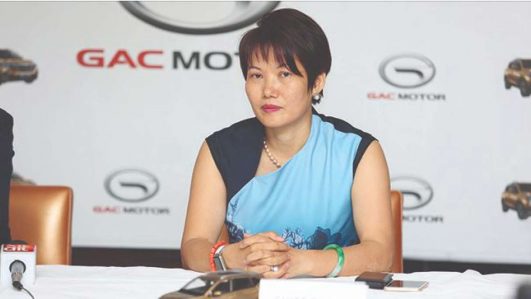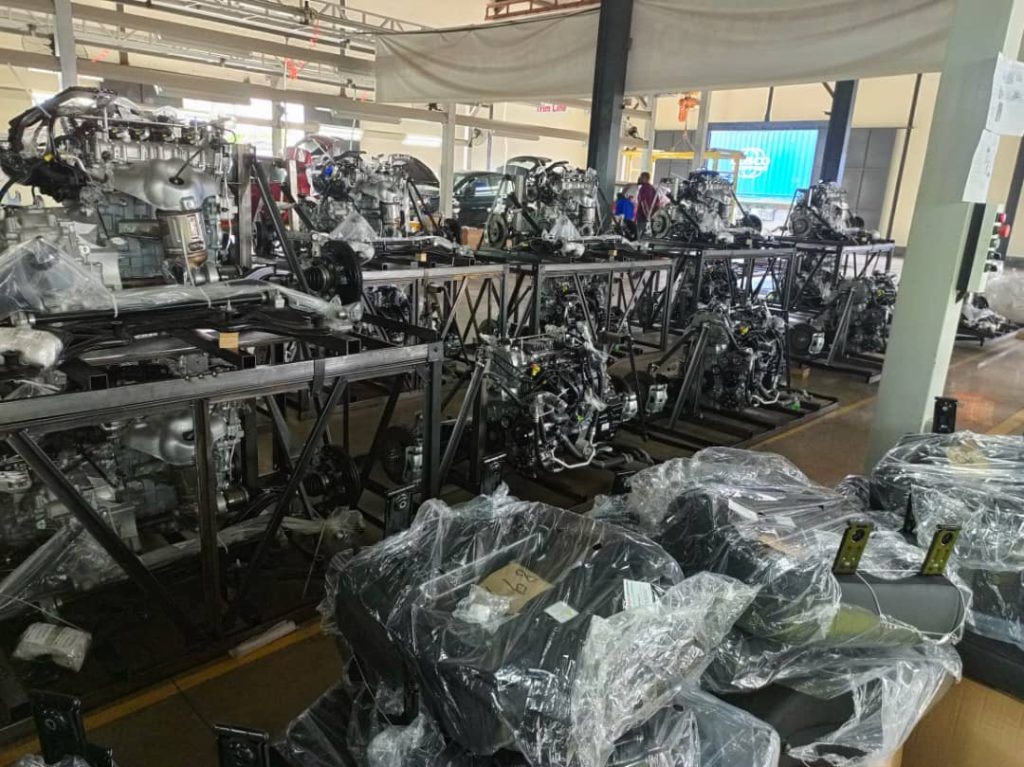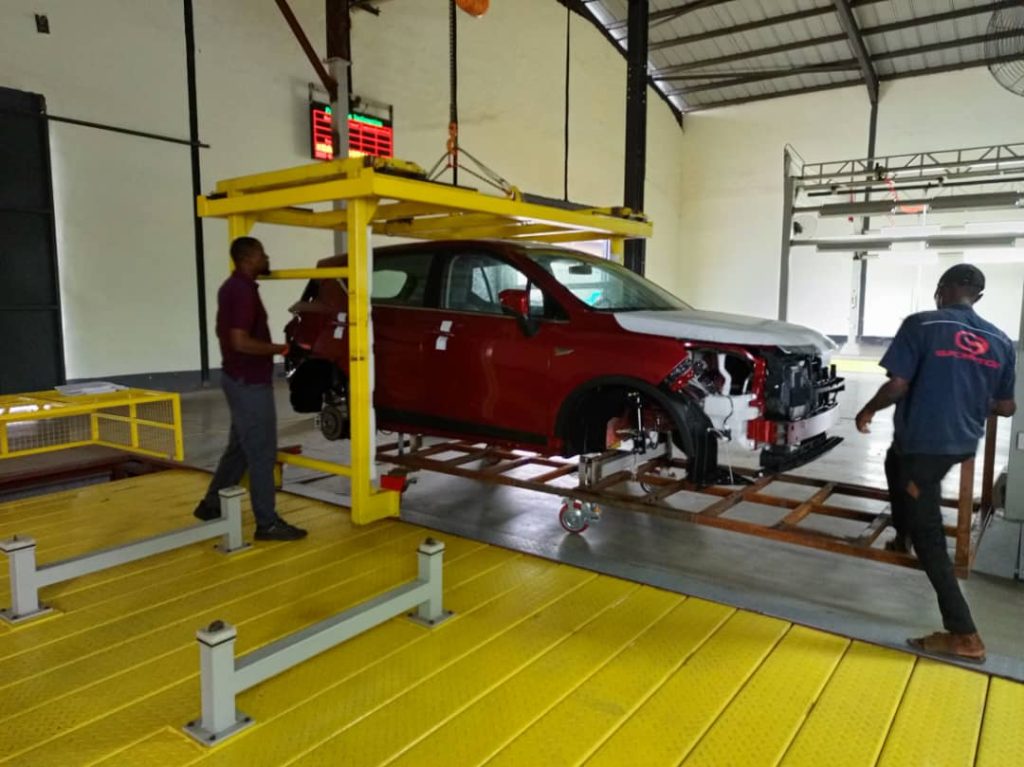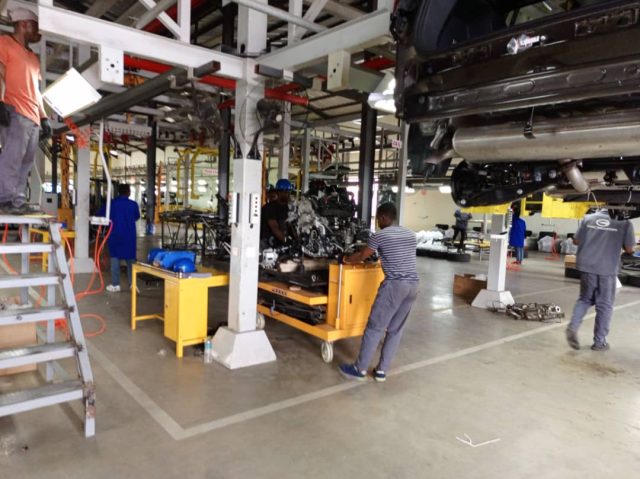IKENNA EMEWU and CHIBUZO IHEGBORO
Choice International Group, better and simply known as CIG is the brainchild of Ms. Diana Chen, the Chinese lady investor in automobile sales, servicing, and in other products. Her other brands include Lontor home appliances.
But before long, Chen didn’t find satisfaction any longer just bringing cars into Nigeria and selling them to buyers. She took her venture higher into the production of automobiles in Nigeria.
Positive step
It was good and satisfying witnessing what manufacturing exploits Chen’s company is making in Lagos producing models of China’s GAC cars locally.
At the Ogba district of Lagos, the car assembly plant is tucked into a corner on Acme Road. It is quite unassuming that there isn’t even a sign to indicate that such huge production goes on there. But all the same, we found the location and were impressed by the amazing work.

What many don’t know is that the GAC brand of automobiles made popular in Nigeria by Chen is actually an old and trusted brand since 1954 in China. It is today the country’s largest automobile manufacturer with 2.14 million vehicles sold in 2021.
Chen’s chain of inputs
In Nigeria, Chen has been powering this brand since 2014. The crux of the pact for the production in Lagos is that the brand must come in the exact standard as those produced in the head office in Guangzhou.
With this new addition to the CIG automobile business and service, it has been a chain of valuable inputs to the Nigerian economy and manufacturing industry.

The head engineer Mr. Heng Tan explained that as the cars arrive in Nigeria from the GAC plant in Guangzhou, China, it is in a semi-knocked-down mode.
All the cars are rolled in a trolley into the assembly production line with just the body as they arrived in the country. They are merely empty shells without any components inside. The parts that would make up the interior and turn it into a car arrive separately and are later fitted on the production line by a team of Nigerian engineers and technicians.

From car shell to automobile
As the car shell rolls into the production line, it starts taking up the substance and the things that make a real car from one production stop to another.
On the production line loop, it starts with the engine block and gearbox mounted. From there it leaves to pick up other parts, including every interior component – the seats, battery, the tyres, some minor body fittings, and more. By the time the car arrives at the final assembly point, everything mechanical and electrical that is required to make it a serviceable automobile is in place. At last, it gets infused with the basic fluids – coolant, air conditioning gas, and brake fluid. At this stage, it is ready to go meet the customer dressed for the road, but for a few more minor stops basically in quality assurance and checks.
Each stage of the production chain goes through quality control and assessment to be sure there is no error. When all these are done, the car is driven out of the loop into another section where the last check is done. These include diving fitness, roadworthiness, waterproof check, and finally the road check. At the time the car passes through the rain chamber where a jet of water bombards it for a set time, and is found not to have any gap for water penetration into the interior, it gets the final test when it is driven through different simulated track surfaces for stability check. This test drive takes 1.5km to complete, after which the product is set for the market.
Busy production wheel

The single factory line churns out an average of 300 cars a month since its inception in 2021. They come in three major models – GS3, GS4, and GS5, with a view to producing the flagship GAC model of GA8 in the near future.
The visit to the production plant, together with the sales and others that have over 100 Nigerians employed was an eye-opener to the new preponderance of GAC brand of cars on Nigerian roads.
During an earlier visit to the corporate head office of CIG on Victoria Island, the CEO, Chen had explained the larger plan of the company and how it thought it improper to keep importing automobiles into Nigeria rather than manufacture here.
A preferred brand
She noted that the Nigerian automobile market has warmly embraced the GAC brand which is fast killing the monopoly of some older brands and affording the Nigerian consumer more and better options at affordable prices.
Chen assured that her company is ready to do more to enrich the Nigerian automobile market, with an additional model service centre that will soon take off in Ojota, Lagos.

With such centre nearby, after-sales service of the cars with assured quality spare parts, GAC will soon take over the market with top range products.










